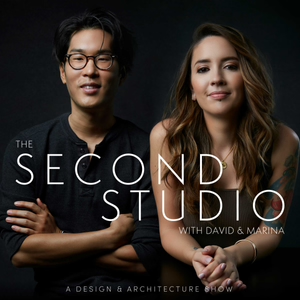
Should We Eat More Processed Foods?
11/25/22 • 53 min
2 Listeners
Processed food is bad for you, right? Well, there’s more to this story. As new technologies create foods that can’t be made in home kitchens, such as plant-based meats and dairy products made with plant proteins, the question of whether we should all be consuming more highly processed foods is up for debate. Advocates say a substantial increase in food processing is the best way to feed growing human populations while also reducing food waste. We should trust – and invest – in food technology that can make our global food supply healthier and more sustainable, including highly or ultra-processed foods. Opponents argue that these kinds of foods are often less nutritious, and are commonly linked to adverse health indices, particularly when it comes to ultra-processing. As this debate blooms, Intelligence Squared partners with the Institute of Food Technologists to debate this question: Should We Eat More Processed Foods?
Arguing in favor of the motion is Amy Webb and Michael Gibney. Arguing against the motion is Kevin Hall and Marion Nestle. Emmy award-winning journalist John Donvan moderates.
Learn more about your ad choices. Visit podcastchoices.com/adchoices
Processed food is bad for you, right? Well, there’s more to this story. As new technologies create foods that can’t be made in home kitchens, such as plant-based meats and dairy products made with plant proteins, the question of whether we should all be consuming more highly processed foods is up for debate. Advocates say a substantial increase in food processing is the best way to feed growing human populations while also reducing food waste. We should trust – and invest – in food technology that can make our global food supply healthier and more sustainable, including highly or ultra-processed foods. Opponents argue that these kinds of foods are often less nutritious, and are commonly linked to adverse health indices, particularly when it comes to ultra-processing. As this debate blooms, Intelligence Squared partners with the Institute of Food Technologists to debate this question: Should We Eat More Processed Foods?
Arguing in favor of the motion is Amy Webb and Michael Gibney. Arguing against the motion is Kevin Hall and Marion Nestle. Emmy award-winning journalist John Donvan moderates.
Learn more about your ad choices. Visit podcastchoices.com/adchoices
Previous Episode

Is Public Radio Still Relevant?
Many Americans grew up with a transistor radio somewhere in the home. Out of it emanated the commentaries, stories, news, and analysis. Public radio was a key means of getting information. But between podcasts, satellite radio and on-demand streaming, some argue that signal is fading. Nimble upstarts and emerging technologies have created wildly successful new platforms, enabling a broad diversity of creators to broadcast their views. What does this mean for the future of public radio? Intelligence Squared host and moderator John Donvan moderates a debate between two media luminaries, who zero in on this existential question: Is Public Radio Still Relevant?
Arguing "No" is Kmele Foster, political commentator and Co-Founder of Freethink. Arguing "Yes" is podcast creator and Co-Founder of Magnificent Noise, Eric Nuzum.
Learn more about your ad choices. Visit podcastchoices.com/adchoices
Next Episode

Is Affirmative Action Unfair to Asian Americans?
An affirmative action battle is again playing out at the highest levels, only this time with Asian Americans at the center of the controversy. At the heart of the matter is the question of whether the Supreme Court should reconsider race in college admissions. The group, Students for Fair Admissions, has taken aim at Harvard University and the University of North Carolina at Chapel Hill, alleging that Asian Americans are less likely to be admitted than comparably qualified white, Black, or Latino applicants. In two separate cases, the group claims that 1.) Harvard’s admissions policy is regressive and discriminates against Asian Americans, and 2.) UNC – which is a public institution and therefore covered by the 14th amendment’s equal protection guarantee – violates both Title VI and the Constitution with its use of race in admissions. But opponents say race-conscious decision making is a necessary tool to address longstanding racism and discrimination. As such, in this timely debate, we ask the question of whether affirmative action is indeed unfair to Asian Americans.
Arguing “yes” is Lee Cheng, co-founder of the Asian American Coalition for Education
Arguing “no is John Yang, president and executive director of Asian Americans Advancing Justice
Learn more about your ad choices. Visit podcastchoices.com/adchoices
If you like this episode you’ll love
Episode Comments
Featured in these lists
Generate a badge
Get a badge for your website that links back to this episode
<a href="https://goodpods.com/podcasts/open-to-debate-64840/should-we-eat-more-processed-foods-25132556"> <img src="https://storage.googleapis.com/goodpods-images-bucket/badges/generic-badge-1.svg" alt="listen to should we eat more processed foods? on goodpods" style="width: 225px" /> </a>
Copy




